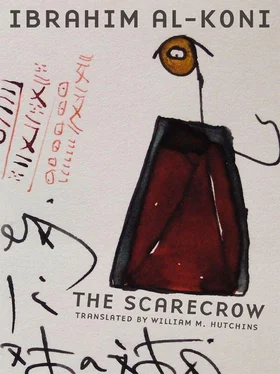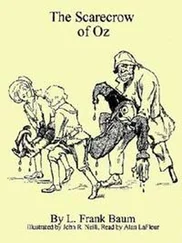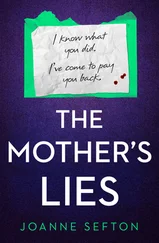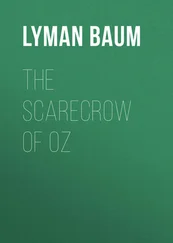The hand remained lifted in space for a long time, and the enchanting body continued to dangle in the air, where it inflamed souls with greed, desire, confusion, and insanity. Finally his palm moved to present the gift to its recipient. The leader placed the noble tail in the chief merchant’s lap, releasing it slowly and allowing the gold to flow onto the seated man’s lap, where it coiled up like a serpent.
Their eyes gazed at the coil with bedazzlement, awe, and astonishment.
2
Generations have discussed gift-giving, saying a gift that proves fatal if it falls below the mark becomes even more lethal if it exceeds the mark. They have related in the language of the ancients how gifts — in the first instance — generate scorn, and how they — in the second — are the lasso of subjugation that wraps around the recipient’s neck.
People of the desert have handed down from generation to generation a story that the first time a gift was given, it whispered in the breast of the recipient, who was obsessed with malice and deceitful thoughts all night long. Then he found no way to doze off. So he slipped into the darkness before dawn, entered the home of his benefactor, and stabbed him with a fatal dagger blow to the heart. In the morning he went out to boast to everyone that he had taken revenge. Inquisitive people asked why he felt no gratitude for the benefaction. Then he shouted at people as loudly as he could, “Nothing in the desert so deserves punishment as a gift, because no one has the right to despise his neighbor. No one has the right to pretend he has been given more possessions than his neighbor — not even if he possesses everything on the whole disc beneath the moon. Anyone who owns something should be discreet about it to the point of feeling ashamed. He should not stand up among people to boast about what his hand, which has been soiled by deceit and lies, possesses. The sovereign is not content to possess everything on earth. He goes beyond that and gains possession of other people with gifts. For this reason, a present deserves the gravest punishment, because it isn’t a boon and has never been one. Instead, it is a crime that outstrips all others, because it means spitting in the face of the Spirit World even before spitting in the face of the nobleman. So beware!”
Desert people recounted another narrative about a man who received a precious gift from one of the elders. It delighted him, and he paid off his debts with it. He invested a share in commercial enterprises. Then he dispatched caravans and purchased maids and slaves, making his fortune. He lost his peace of mind, however, and was disturbed by a feeling of being indebted and of not having repaid his debt. So he went to his benefactor and bestowed a fortune on him. Then he returned home but still could not feel calm, because the whispered insinuations he heard in his heart and saw in everyone’s eyes mocked him even more, telling him in an audible voice that he would never be able to repay the debt to the lender — no matter how much he gave him — because a gift is not a loan; a gift is a loan that can never be repaid. A gift, even when repaid, still remains a debt for as long as the desert stretches beneath the dome of the sky and creatures are strewn across the wasteland.
The wretch suffered from insomnia — an insomnia he had not experienced even during his years of commercial speculations and of making deals in the markets of the oases and distant cities. He suffered from insomnia, and the insinuating whispers persisted in his breast. He felt exhausted and depressed. He neglected his herds, his commerce declined, and his stocks found no market. Then he lost his close friends, his family, and even his slaves. All he had left was ill health. He suffered with his disability for a long time, until the day sparks exploded inside him. Then he went to the residence of the man who had been his benefactor, guided by an obscure inspiration to kill him by strangling him.
Since then, successive generations have considered gift-giving to be a lethal danger. One person said that it is tantamount to spitting in a person’s face. Others said that since it is a debt to the jinn, no man can repay it to another man. A third faction viewed it as a cause for civil strife and a down payment on enmity. The tribes’ cunning strategists repeated a cryptic characterization of it as the Spirit World’s curse.
3
It is said that when the nobles accepted gifts from the cunning strategist, he told his close associates that he had only presented these gifts as a form of self-defense, because the Law of Gift-giving grants a right of revenge to conspirators who are good to people and befriend strangers with presents and gifts. When experience taught him that time inevitably reveals peoples’ hidden intentions, he saw that people rush to their demise instead of waiting for the preordained sword thrust on a day when no amount of planning will help.
Gossips attributed the death of the chief merchant (who was found strangled by his gold belt) to his excessive greed and his impudent bickering with a wayfarer whose secret he did not know and whose goal he did not perceive. He had forgotten that the being who sat before him enveloped in black was a newborn delivered by the Spirit World the previous day from the loins of the twilight before he became the creature to whom they pledged fealty that day. Then the wretch met a hideous destiny that was a far cry from the wisdom people attributed to him. Indeed, it was even said that the Spirit World’s emissary, who came to the oasis disguised in the garments of a wayfarer, had punished the man with two veils in the worst possible way — first and foremost to expose this arrogant man’s claim to wisdom, and secondly to teach fools the proverb that says the wisdom of a person destined to annihilation is as bogus as all the trifles destined for annihilation.
Imaswan died from being stabbed by the spear — which had a shaft studded with red gemstones — he had sarcastically asked for on that ill-omened day.
Of Amasis the Younger, tongues related how a tremor had affected him at the time of the distribution. His veil had dangled around his lips, his mouth had foamed copiously, and his eyes had glittered suddenly with a strange moisture that his peers had never observed there before. His voice had quavered with genuine emotion when he exclaimed, “Truffles! Truffles! If you found truffles for me in your bag, I would give you my whole life!”
The messenger of Luck smiled in the mysterious way that almost became an identity or a metonym for him. This was a cunning smile that only strategists have perfected. Then he thrust the hand of certainty into his frightful knapsack to extract three medium, round truffles of various colors. These were marked with mysterious, cryptic indentations that might have been drawn by the hand of a sorcerer or a diviner. Clinging to them were clods of moist, fresh, dark dirt — as if the hand of the jinn had dug these treasures from the earth of the Western Hammada and brought them from that distant land to place before this man, who was a passionate connoisseur of truffles. He began to inhale the aroma of the legendary fruit. Then he muttered guttural, unintelligible sounds and swayed east and west, weeping tears of ecstasy, affliction, and longing. The next morning they found him pop-eyed and bathed in foam and saliva. His face was spotted with suspicious blue marks herbalists said appear only on the bodies of people exposed to the most virulent poisons.
The fate of the hero Ah’llum differed from those of his comrades.
On that day Ah’llum was silent for a long time. The messenger did not entice or goad him, appearing oblivious to his existence. Unlike his comrades, the hero did not ask the sultan of gifts to produce a prodigy from his wonder-sack. Finally the hero wiped his eyes with the dark scrap of cloth and said, “Master, I have learned from experience that I lose the battle whenever I desire booty. Combat, master, is my profession, but I have learned to leave the spoils and the captives to the cowards. This principle is not merely the secret of my heroism but is also the secret of my salvation. I won’t deny that I am a creature who has desires like anyone else, because I have never been as passionate about anything as my health. Indeed, I admit that good health is my true love. Couldn’t my master produce from his satchel a salve or some other remedy that would heal my vision?” The mysterious creature smiled enigmatically and thrust a knowing hand into his dread sack to extract a small purse of dark cloth decorated with suspicious embroidery. In the purse the hero found coal black ashes that the master of ceremonies assured him was kohl that would restore his vision’s health in the wink of an eye.
Читать дальше












